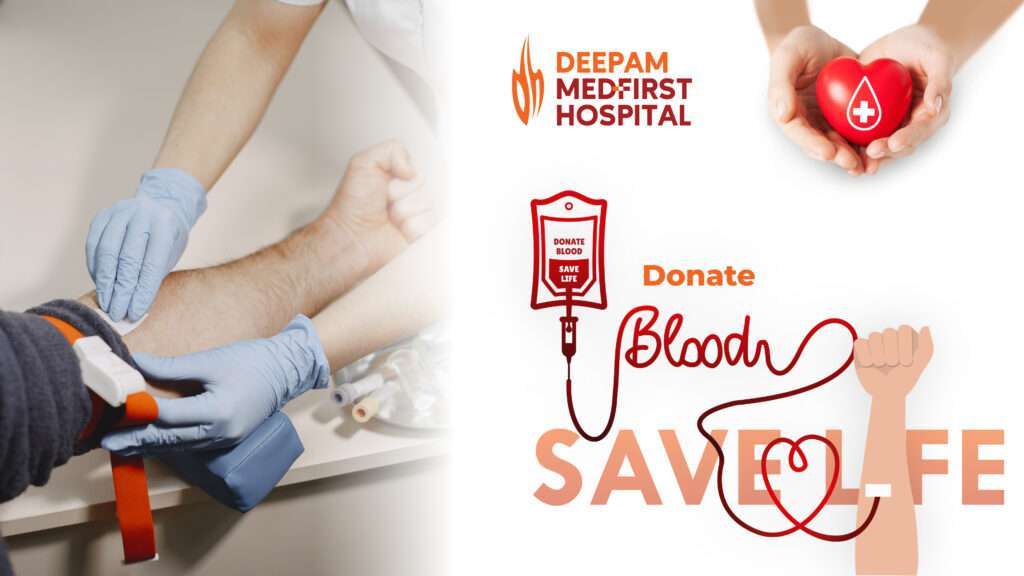Introduction
Blood donation is a vital yet often overlooked aspect of healthcare. Every day, hospitals depend on donors to save lives and support medical treatments. This blog aims to underscore the importance of blood donation, dispel common myths, and inspire more individuals to contribute. Let’s explore why donating blood is a simple yet profound way to make a life-saving impact.
Why Blood Donation Matters
Imagine a loved one needing emergency surgery or a child undergoing treatment for leukemia. In these critical moments, access to safe and compatible blood can mean the difference between life and death. Blood donations are vital for
Emergency Situations
Accidents, surgeries, and childbirth often require immediate transfusions.
Chronic Conditions
Patients with cancer, blood disorders, or chronic anemia rely on regular transfusions.
Medical Procedures
Organ transplants, complex surgeries, and treatments like chemotherapy necessitate blood products.
Who Can Donate?
Almost anyone can donate blood, provided they meet basic criteria
Generally, in good health
Weight should be above 45 kg
Age between 18 – 65 kg
Not currently ill or on certain medications
The Impact of Your Donation
Every unit of blood donated has a profound impact
Direct Support
Depending on where you donate, your funds can directly support various causes such as feeding the hungry, providing medical aid, or educating children.
Capacity Building
Donations can help organizations expand their capabilities, whether through hiring more staff, improving infrastructure, or scaling their operations to reach more people in need.
Empowerment
By supporting initiatives that empower communities, you contribute to long-term solutions. This could mean funding education programs, skills training, or initiatives that promote sustainable development.
Research and Innovation
Blood Donations often fuel research into pressing issues like healthcare, environmental sustainability, or technology for social good. This research can lead to breakthroughs that benefit society as a whole.
Advocacy and Awareness
Funding advocacy efforts can amplify the voices of marginalized groups, raise awareness about important issues, and influence policy changes for the better.
Crisis Response
During emergencies such as natural disasters or humanitarian crises, Blood donations provide critical aid quickly, saving lives and helping communities recover.
Encouraging Others
Your donation can inspire others to give, creating a ripple effect that multiplies the impact of your initial contribution.
Personal Fulfillment
Knowing that you’ve made a difference can bring a sense of fulfillment and happiness, contributing to your overall well-being.
The Donation Process
The process of donating blood is straightforward and designed to be safe for both the donor and the recipient. Here’s what you can expect when you decide to donate blood:
Preparation
Before donating, you will undergo a brief health screening to ensure that you are eligible to donate blood. This may include checking your hemoglobin levels and reviewing your medical history.
Donation
The actual donation process typically takes about 10-15 minutes. A trained healthcare professional will cleanse an area on your arm and insert a sterile needle to draw blood into a collection bag.
Rest and Refresh
After donating, you will have a short rest period and be offered refreshments to help replenish your fluids.
Return
Once you feel ready, you can resume your normal activities knowing that your donation will soon be used to help someone in need.
Benefits of Being a Blood Donor
Aside from the satisfaction of knowing you’ve potentially saved lives, there are other benefits to becoming a regular blood donor
Health Benefits
Donating blood can help reduce iron levels, lower blood pressure & Decrease risk of heart attack
Community Impact
Your donation directly supports your community by helping local hospitals and patients.
Free Health Check
The health screening conducted before each donation can sometimes detect underlying health issues early.
Conclusion
Blood donation is a direct and impactful way to save lives and support your community. Taking that first step to donate blood can mean the world to someone in need and offers personal satisfaction in knowing you’ve made a tangible difference.

